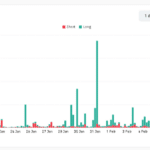(This post starts with 'Finally' because it is the end of the recent Forbes article where the preceding paragraph entitled 'crazy monetary policy' was in fact official policy a few days after MOD wrote it...
This final section starts with the heading 'even crazier policy actions'. - AM)
FORBES
Nouriel Roubini
Finally, the Fed could try to follow aggressive policies to attempt to prevent deflation from setting in: massive quantitative easing; flooding markets with unlimited unsterilized liquidity; talking down the value of the dollar; direct and massive intervention in the forex sphere to weaken the dollar; vast increases of the swap lines with foreign central banks aimed to prevent a strengthening of the dollar; attempts to target the price level or the inflation rate via aggressive preemptive monetization; or even a money-financed budget deficit (an idea suggested by Bernanke in 2002 that he termed to be the equivalent of a "helicopter drop" of money in the economy).
The problem with many of these "extreme" policy actions is that they were tried in Japan in the 1990s and the last few years, and they failed miserably. Once you are in a liquidity trap and there are fundamental deflationary forces in the economy as the excess aggregate supply of goods faces a falling aggregate demand, it is very hard--even with extreme policy actions--to prevent deflations from emerging.
Some very aggressive policy actions--such as letting the dollar weaken sharply--may do the job, but they may also be beggar-thy-neighbor policies that would export even more deflation to other countries. The world economy has been massively imbalanced for the last decade with the U.S. being the consumer of first and last resort, spending more than its income and running ever larger current account deficits while creating a massive excess productive capacity via over-investment.
All the while, China and other emerging markets have been the producers of first and last resort, spending less than their income and running ever larger current account surpluses. With U.S. spending now faltering, a global glut of unsold goods may lead to persistent and perverse deflationary forces that may last for a longer time unless proper policy actions--mostly non-necessary monetary--are undertaken.
Thus, dealing with this deadly combination of deflation, liquidity traps, debt deflation and defaults that I termed a global stag-deflation may be the biggest challenge that U.S. and global policy makers have to face in 2009.
It will not be easy to prevent this toxic vicious circle unless (1) the process of recapitalizing financial institutions via temporary partial nationalization is accelerated and performed in a consistent and credible way; (2) such actions are combined with massive fiscal stimulus to prop up aggregate demand while private demand is in free fall; (3) the debt burden of insolvent households is sharply reduced via outright large debt reduction (not cosmetic and ineffective "loan modifications"); and (4) even more unorthodox and radical monetary policy actions are undertaken to prevent pervasive deflation from setting in.
Friday, November 28, 2008
Subscribe to:
Post Comments (Atom)



No comments:
Post a Comment